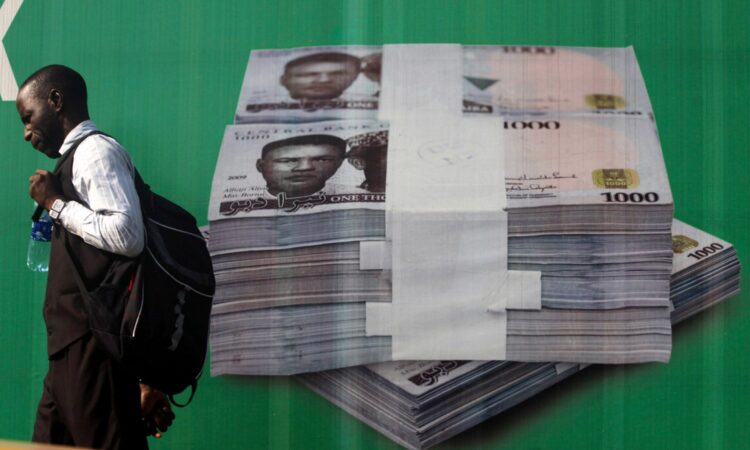
In July, when Nigerian agritech startup Winich Farms shared its quarterly financial report with stakeholders, it reported all the figures twice. One version used the old official currency rate of around 460 naira per dollar, while the other featured the newer rate of 800 naira to a dollar. The company wanted to show its stakeholders how much it had grown during the quarter while revealing how much of that growth had been eroded due to Nigeria’s new foreign exchange policy.
In June, the naira went into a tailspin after the Central Bank of Nigeria (CBN) loosened its control of foreign exchange rates. In the past, CBN had followed a fixed foreign exchange policy that pegged the local currency at around 460 naira to a dollar. Under the new rule, CBN allowed the market to determine the daily exchange rates. This led to the naira’s official rate jumping to over 770 per dollar by mid-July.
This has wreaked havoc for startups, which need to translate their financial figures into dollars for international investors. Their revenue, in dollars, has almost halved — even as their businesses are actually growing.
Nigeria is Africa’s largest startup ecosystem, representing about a quarter of all venture capital raised on the continent in 2022. Rest of World spoke to eight Nigerian founders who said they were struggling to keep their companies afloat due to the sudden sharp decline in the naira’s value. Investors said the new policy poses a danger to the country’s startup ecosystem, which is largely funded in dollars but generates revenue in naira.
“Before the float, we were reporting our revenue at $1 per 500 naira. This changed to $1 per 700 naira. That’s a 40% dip for most startups.”
“We’re caught in between reporting using a constant exchange rate to express growth or using the current realities which wipes away growth,” Riches Attai, co-founder and CEO of Winich Farms, told Rest of World. “In 2022, when we move 1 billion naira worth of produce in a month, that’s approximately $2.3 million. Now, that’s only $1.2 million.” Winich’s investors include an accelerator program affiliated with the German development agency GIZ.
“Before the float, we were reporting our revenue at $1 per 500 naira. This changed to $1 per 700 naira,” Femi Iromini, co-founder and CEO of fintech company Moni, told Rest of World. “That’s a 40% dip for most startups earning in naira.” The free-floating rate of the naira has led to a continued depreciation and poses grave dangers to the viability of businesses in Nigeria, Adedayo Amzat, CEO of Lagos-based financial institution Zedcrest Group, told Rest of World. “The adjustments now formally weaken the reported naira rate, leading to sharp dollar revenue markdowns for naira-earning businesses, and valuation losses from [foreign exchange]-denominated liabilities,” Amzat told Rest of World.
High exchange rates also mean that startups have to spend more on operations as the costs of imported items have seen a steep increase, Temitope Ekundayo, co-founder and CEO of online printing startup Printivo, told Rest of World. He claims some startups have been paying 200% more for cloud servers and software after the new foreign exchange norms were implemented. The costs of diesel, power printing machines, new machine parts, logistics, and raw materials such as paper and ink have also gone up by 300%, said Ekundayo, also the co-founder of digital investment platform GetEquity. “It’s one of the battles I am dealing with. Customers are now negotiating tighter but we have not seen any drop in demand [yet], just more margin shifts. [But] receivables are now longer to collect than before and even foreign customers find it harder to pay,” he said.
Iyinoluwa Aboyeji, general partner at early-stage venture capital firm Future Africa, told Rest of World his firm is advising its portfolio companies to explore business abroad to avoid naira-related challenges. “Generally speaking, we want to move as many of our companies as possible to start to export software and labor because we think that’s the only way to stay on the better side of this crisis — when revenues are in U.S. dollars,” he said.
Future Africa has reviewed the valuations of a few of its portfolio companies following the changes to the currency rate, said Aboyeji, and is “having them understand that the valuation expectations that were set at about half of what it looks like today obviously can’t hold and so we need to probably take another look at advancing. Some have agreed and some others are not in the position to do so.”
Ekundayo described the current state of affairs as the worst economic challenge he’s faced while building businesses. He said some startups will buckle and shut in this environment: “We are facing the worst economic challenge across [the] board. No single person has it good right now. So many businesses will die. It’s not a matter of if, but when.”

